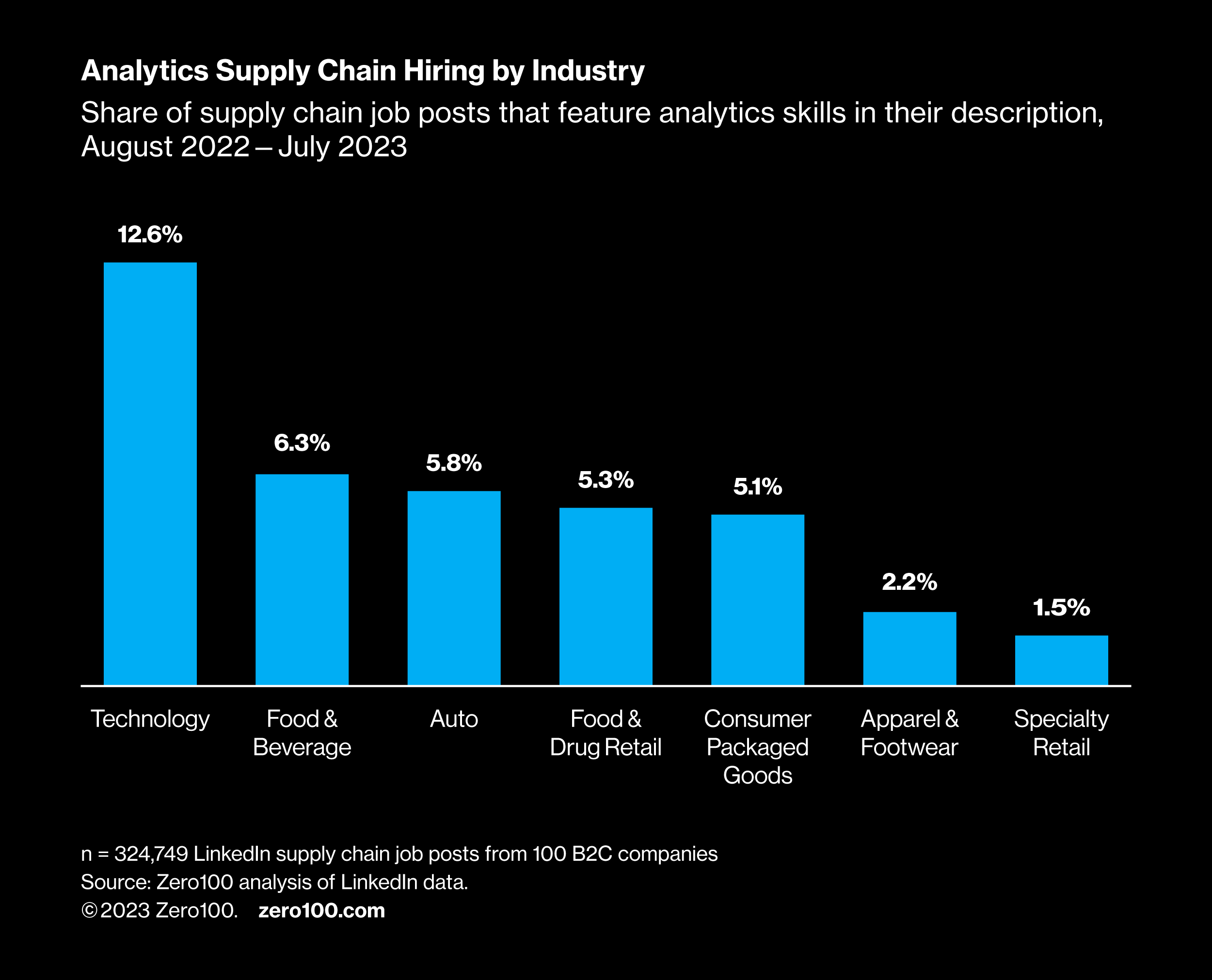
Key Takeaways
-
1
Only 5.1% of supply chain job listings on LinkedIn at the largest 100 B2C companies mention analytics skills. Though a small percentage, this is more than any other digital capability.
-
2
Tech and food and beverage companies feature analytics skills more than any other industries. Leaders include Microsoft, Alibaba, Mondelēz, Coca-Cola, and Danone.
Analytics is vital to digest, analyze, and act on the vast data sources – internal and external – that power modern supply chains. Uncertainty across supply chains means that every single piece of the puzzle (eg, taking orders, mapping routes, planning factory processes, etc) that can be quantified will de-risk the choices you make.
And yet... this skill is nowhere to be found in the majority of job posts. 5.1% of supply chain job listings mention analytics capabilities, which is slightly less than all other jobs (5.7%). Despite this, analytics is the most mentioned digital skill across supply chain job posts.
Five of the top ten companies hiring for analytics skills in supply chain jobs are outside of tech, even though the tech industry leads overall. Colgate-Palmolive and Nike sit alongside Microsoft, Alibaba, and Dell in this leading group. These companies all outperform their industries by at least 14 percentage points.
The food and beverage industry has the second-highest share of analytics mentions in job posts. Two leaders are Mondelēz and Coca-Cola, with 11% and 10%, respectively. Mondelēz is the largest employer in the industry, with almost a third of all food and beverage supply chain job posts. Robust analytics allow Mondelēz to accurately predict demand levels, which consequently determine production levels. Thanks to their planning analytics, the accuracy of these two-month forecasts has improved from 5% to 75%. In logistics, Coca-Cola uses analytics on data from sensors, IoT devices, and AI to monitor shipments, track inventory levels, and proactively address disruptions, which generates cost savings and efficiencies.

While artificial intelligence is one of the hottest topics in conversations between the CSCO/COO and CEO, having a strong analytics foundation is critical to digital transformation. AI/ML and other next-generation technologies are neutered without a robust data infrastructure and analytics framework to operate around.
One company that has built a solid internal foundation for analytics is Danone. They opened an analytics “bar” to market data-driven thinking and the opportunities for impact in a culturally accessible way. Their internal social media is a place for employees to receive educational data and analytics content, while e-learning and workshops provide more formal courses. Since a large proportion of the Danone workforce are not data professionals, there are separate data academy courses for them too. Ensuring executive buy-in on analytics skills for the wider business is another reason for the training. This data "bar” has helped to promote the benefits of analytics skills in the workplace so employees no longer fear technology. From a supply chain perspective, subsequent AI-led transformation programs have caused a 20%+ gain in forecast accuracy and comparable in-stock improvements.
To see a different data cut or to dig deeper into this topic, reach out to our Head of Research Analytics, Cody Stack, at Cody.Stack@zero100.com.
Methodology
Zero100’s proprietary data and analytics are a combined effort between our data scientists and research analysts. We provide data-first insights matched with our own research-backed points of view and bring this analysis to life via real-world case examples being led by supply chain practitioners today.
For this study, we looked at 2.4 million LinkedIn job posts from 100 B2C companies. Our analysis categorizes listings based on mentions of specific digital skills within job titles and descriptions.
